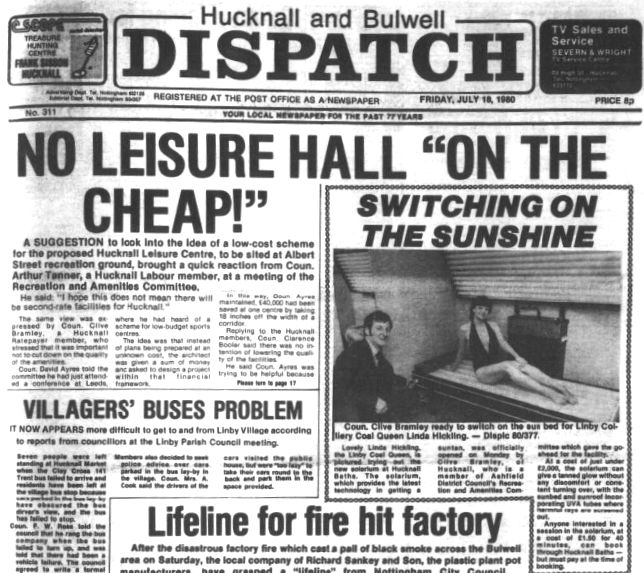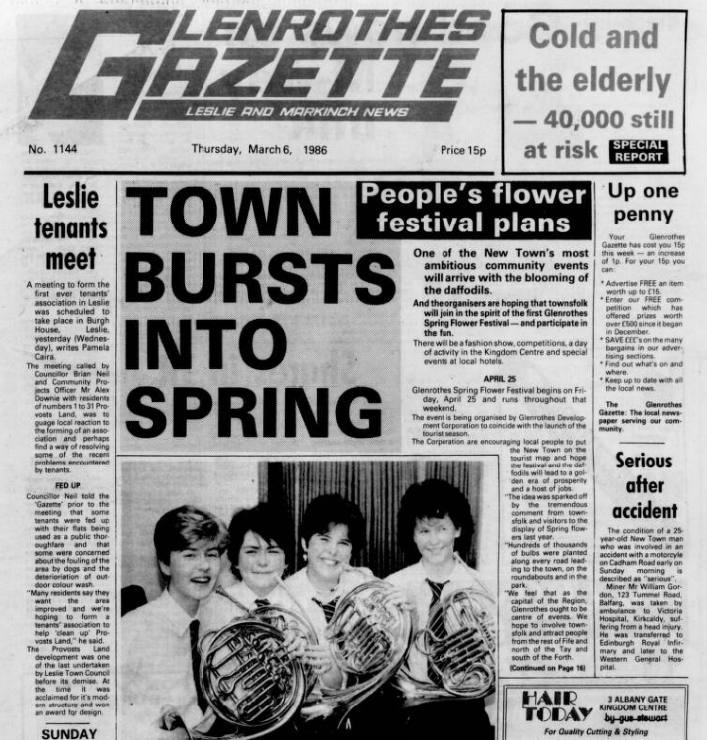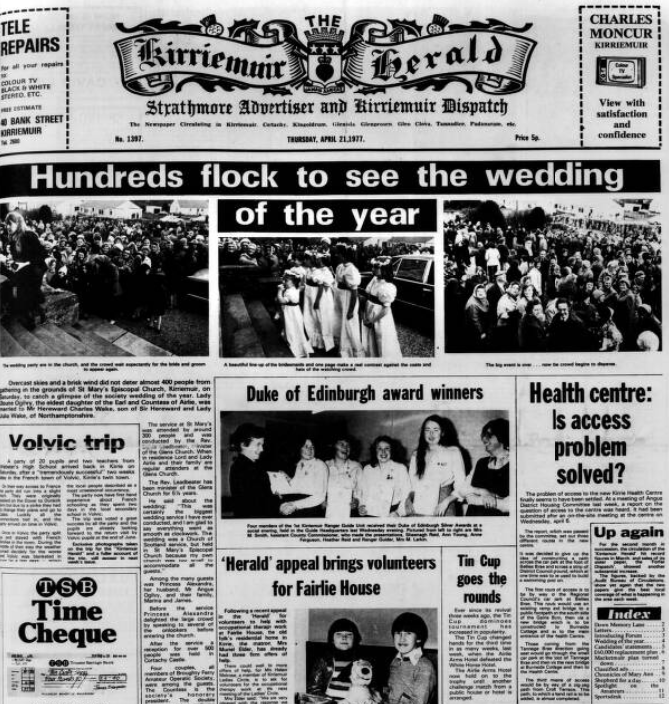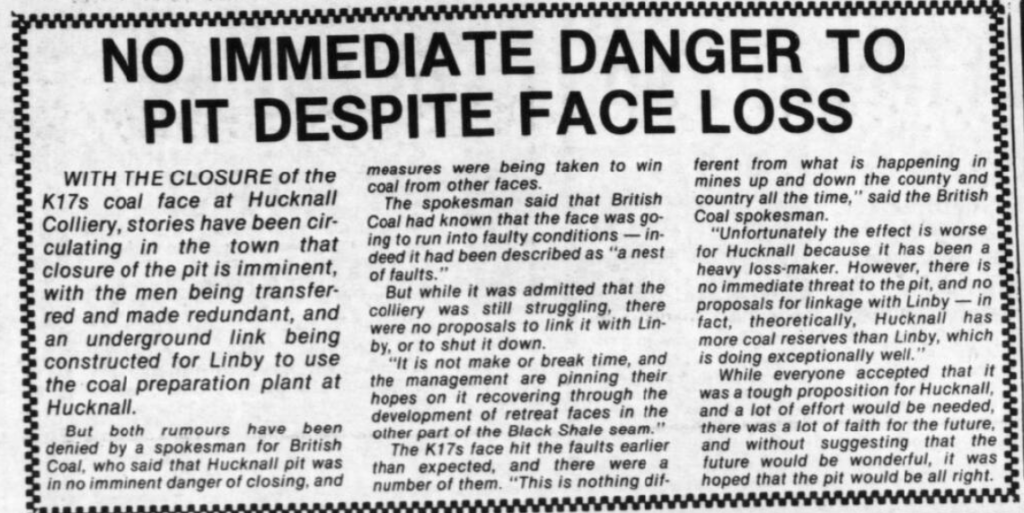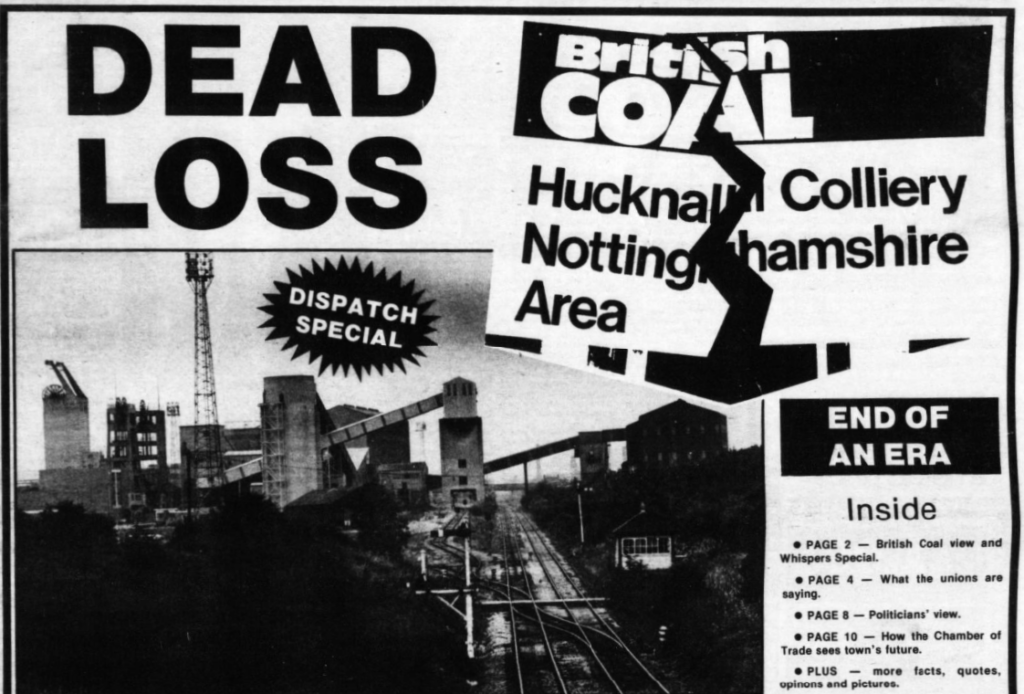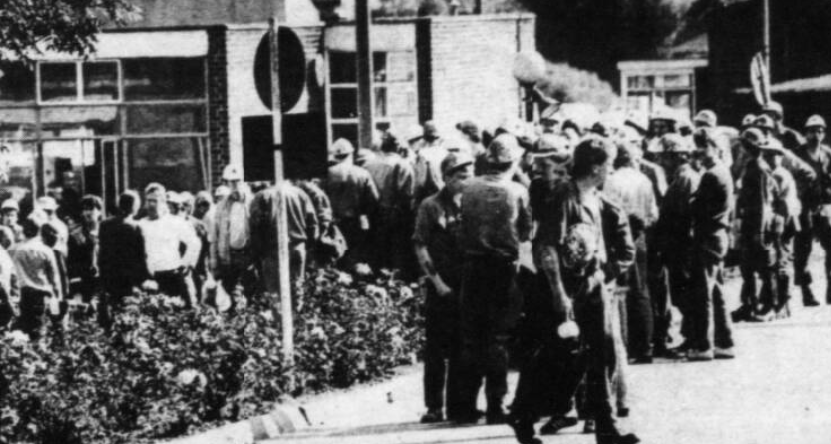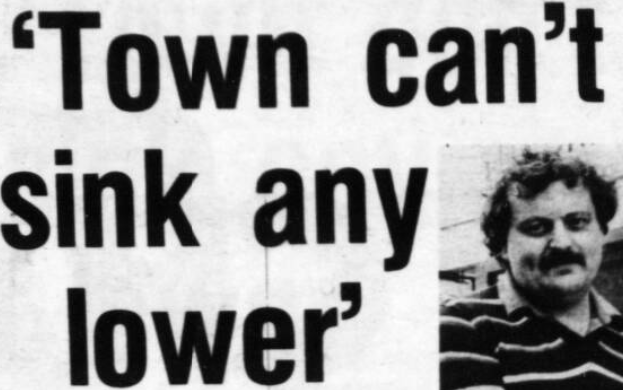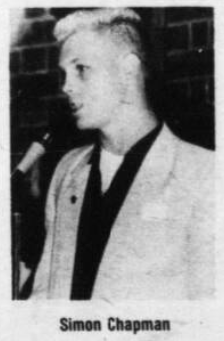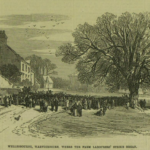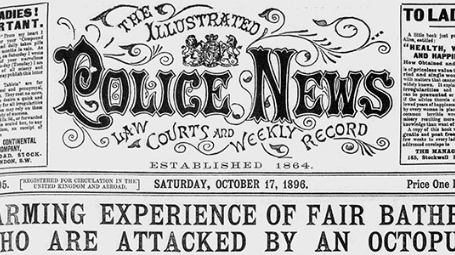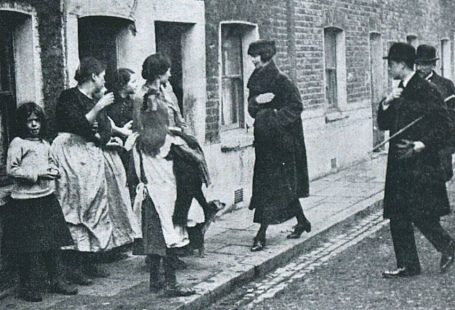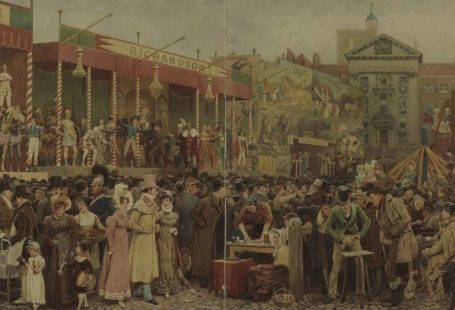Over the last seven days at The Archive we have added an incredible half a million brand new newspaper pages, alongside three brand new titles, as we use our new pages to learn more about the closure of Hucknall pit, in Nottinghamshire, in 1986. With 510,410 brand new pages added this week in all, we’ve also updated 23 of our existing titles from across England, Scotland and Northern Ireland.
So from Ballymena to Belper, from Deeside to Driffield, from Sheffield to Shetland, there’s something for everybody (even the sports fans, with new pages added to the Star Green ‘un) this week. Meanwhile, our trio of new titles cover both England and Scotland, with our new titles hailing from Hucknall, Kirriemuir and Glenrothes. Read on to find out more about our new and updated titles of the week, and also to discover more about the closure of Hucknall pit in the 1980s.
Register now and explore the Archive
First up this week, helping us delve into the history of Hucknall pit, is the Hucknall Dispatch, which was founded in the Nottinghamshire market town of Hucknall in 1903. Starting life as the Hucknall Torkard Dispatch and Leen Valley Mercury and costing just one halfpenny, in 1913 the newspaper became known as the Hucknall Dispatch and Leen Valley Mercury. The dropping of ‘Torkard’ from its name foreshadowed the town of Hucknall Torkard halving its own name two years later in 1915.
Change was afoot again in 1947 when the paper changed its name once more to become the Hucknall Dispatch, the Notts Dispatch, before becoming simply the Hucknall Dispatch in 1962. In 1974 the title merged with the Bulwell Dispatch, itself founded in 1953, emerging with the new moniker of the Hucknall & Bulwell Dispatch. A new century brought change once more, as in 2008 the newspaper reverted to its earlier title of the Hucknall Dispatch.
A weekly tabloid newspaper, the Hucknall Dispatch has been proud to act as the area’s local newspaper, serving the market town of Hucknall and the surrounding area in the district of Ashfield, from Bulwell in the south to Newstead in the north. Still in print to this day, the Hucknall Dispatch appears every Friday. Stay tuned as we use pages from this new title to find out more about the closure of Hucknall pit in 1986.
We leave Hucknall and Hucknall pit for now to travel to Scotland to introduce this week’s duo of new Scottish titles. We begin with the Glenrothes Gazette, which was founded in the Fife town of Glenrothes in 1962. ‘The only paper dedicated to Glenrothes,’ the title appeared every Thursday with the full title of the Glenrothes Gazette, Leslie and Markinch News.
Filled with local news and photographs of local personalities and places, the Glenrothes Gazette also printed extensive notices of births, marriages and deaths, alongside horoscopes, church notices and nature notes. Serving Glenrothes, Markinch, Leslie, Thornton and Kinglassie, the Glenrothes Gazette is published to this day, and now appears every Wednesday.
Before moving on to Hucknall pit, we pay a final visit to Scotland as we introduce the last of our new titles this week, which is Angus’s Kirriemuir Herald. The Kirriemuir Herald first appeared in Kirriemuir, a burgh in Angus, in 1949 as the Kirriemuir Herald, Strathmore Advertiser and Kirriemuir Dispatch, adopting its present, shorter, name in 1977.
Circulating in Kirriemuir, Cortachy, Kingoldrum, Glenisla, Glenprosen, Glen Clova, Tannadice, Padanaram, and other nearby towns and villages, the Kirriemuir Herald appeared every Thursday and filled eight pages. Covering local news, this Scottish title also included a local quiz, a look back at headlines from the past, a family bookshelf section, and a column devoted to ‘farming and food topics.’
The Kirriemuir Herald still appears to this day, now ‘bringing you news, features and sport every Wednesday.’
That may be it from our new titles of the week, but with 23 of our existing titles updated there is still so much for you to enjoy. By far and away the biggest update this week are the over 88,000 brand new pages we have added to the Wolverhampton Express and Star, whilst over 44,000 brand new pages join last week’s new title the Sleaford Standard, with the Blyth News Post Leader claiming a respectable third place in terms of pages added, seeing over 40,000 brand pages join its ranks.
This week also sees significant updates to our Scottish titles, with nine newspapers from Scotland all enjoying updates this week. We’re delighted to welcome over 31,000 brand new pages to the Shetland Times, whilst over 19,000 brand new pages join the Fife Free Press, & Kirkcaldy Guardian and 18,000 brand new pages join the St. Andrews Citizen. Finally, the week also sees updates to Northern Irish title the Ballymena Observer.
The Closure of Hucknall Pit
The 1980s were a time of great strife in the coal mining industry, the miners’ strike of 1984 to 1985 the biggest industrial dispute post-war Britain had seen. Many mines were closed in 1984, whilst the historical Hucknall pit, in Nottinghamshire, was not closed until 1986. Our new title the Hucknall Dispatch sheds a light on this fraught time in Nottinghamshire’s industrial history, as communities across the country grappled with changes in ways of work and ways of life.
In July 1986, however, the Hucknall Dispatch was reporting that there was ‘no immediate danger’ to the pit in the town. By the autumn, all this had changed. The front page of the Hucknall Dispatch on 19 September 1986 proclaimed how it was an ‘end of an era,’ as the decision had been made to close Hucknall pit:
The grand 124-year-old pit, around which a proud, independent town grew and prospered, is dead. Tuesday, September 16, 1986, will go down in history as the day they decided to shut the ‘bottom pit.’ And it must be regarded as one of the blackest days in Hucknall’s history.
The ‘bottom pit,’ the town’s second pit, was sank all the way back in 1866. Hucknall’s first pit, the ‘top pit,’ was sunk a few years earlier in 1861, and had closed by 1943. But the bottom pit by 1986 was still going, that was, however, until British Coal decided to close it. The Hucknall Dispatch reported how:
British Coal announced their decision to close down Hucknall Colliery after a mass meeting with officials, miners and union representatives at the pit. The stark reason was that the pit was making a staggering financial loss – because of desperate geological conditions. According to British Coal figures, the pit has lost £85 million over the last five years – and is currently losing £1 million every three weeks. This is despite heavy investment.
According to the Hucknall Dispatch, there were 1,320 miners employed at the Hucknall pit, who had been offered either redundancy money (£8,000 for every year employed by British Coal), or a transfer to another pit. However, there was a belief, expressed by the Hucknall miners’ main union, the Union of Democratic Mineworkers, that the ‘pit could still be saved.’ Meanwhile, the newspaper related how the town of Hucknall was ‘bracing itself for the ‘knock-on’ effect closure is certain to have,’ waiting to see ‘if the death of Hucknall pit will mean the death of the community.’
In the same edition of the Hucknall Dispatch, which marked the closure of Hucknall pit, Hucknall Chamber of Trade chairman Steve Honeywood made ‘the bold prediction that the closure of Hucknall pit will have little effect on the town.’ He was quoted as saying:
‘The town can’t sink any lower…I don’t think the closure of the pit can make things any worse. Just look at the town centre today (Tuesday) – it is deserted and it was deserted yesterday too. Lack of car parking – and that alone – has stifled Hucknall.’
In the weeks that followed the announcement of the closure of Hucknall pit, the town’s local newspaper continued to investigate the impact of the closure on the local community. On 3 October 1986 the newspaper examined the ‘crippling effect on the town,’ as voiced by Simon Chapman, a member of the Hucknall Labour Party’s Young Socialists:
‘In a town where unemployment is already running at 14%, the loss of 1,300 jobs would leave Hucknall as it was in the 1930s…To British Coal, these are just faceless figures on a balance sheet. But to Hucknall they mean poverty, social problems, people having to leave the town and young people roaming around the streets with nothing to do.‘
This was an opinion echoed by trade union spokesperson Barry Johnson, who said:
‘For every job at the pit, there are one or two others in the town that are effectively dependent on those at the pit.’
With the closure of the Hucknall pit, the town’s long history of mining came to an end. Find out more about the widespread closure of Britain’s mines in the 1980s, the UK’s industrial history, and much more besides, in the pages of our newspaper Archive today.
New Titles
| Title | Years Added |
| Glenrothes Gazette | 1986-1993 |
| Hucknall Dispatch | 1979-1983, 1985-1986, 1988-1996, 1998 |
| Kirriemuir Herald | 1971-1974, 1977-1979 |
Updated Titles
This week we have updated 23 of our existing titles.
You can learn more about each of the titles we add to every week by clicking on their names. On each paper’s title page, you can read a FREE sample issue, learn more about our current holdings, and our plans for digitisation.
| Title | Years Added |
| Arbroath Herald | 1974-1980, 1986 |
| Ballymena Observer | 1994 |
| Belper News | 1986-1987, 1989, 1993-1994, 1996 |
| Blyth News Post Leader | 1989-1990, 1993-1996, 1998-1999 |
| Broughty Ferry Guide and Advertiser | 1985-1986 |
| Deeside Piper | 1986 |
| Driffield Times | 1986 |
| Fife Free Press, & Kirkcaldy Guardian | 1958-1963, 1966-1970, 1983-1986 |
| Fife Herald | 1986-1987 |
| Fraserburgh Herald and Northern Counties’ Advertiser | 1993-1994 |
| Halifax Evening Courier | 1962-1965 |
| Leighton Buzzard Observer and Linslade Gazette | 1986 |
| Lincolnshire Standard and Boston Guardian | 1987, 1995-1998 |
| Montrose Review | 1960-1964, 1967-1977 |
| Northampton Herald | 1854 |
| Pateley Bridge & Nidderdale Herald | 2001 |
| Sheffield Independent | 1911 |
| Shetland Times | 1912-1931, 1933-1947, 1951-1979 |
| Sleaford Standard | 1963-1983, 1986-1987 |
| St. Andrews Citizen | 1872-1874, 1969-1984, 1986-1988 |
| Star Green ‘un | 1946-1948, 1959-1961 |
| Sunderland Daily Echo and Shipping Gazette | 1988-1989 |
| Wolverhampton Express and Star | 1962, 1972-1975, 1977-1978 |
You can keep up to date with all the latest additions by visiting the recently added page. You can even look ahead to see what we’re going to add tomorrow.


